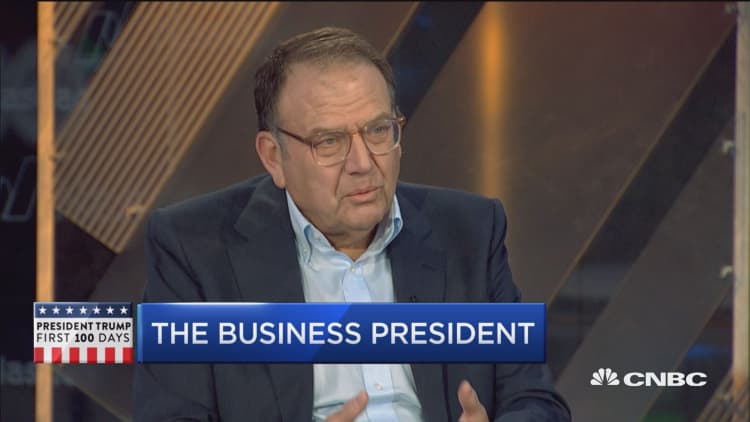Headlines out of Washington D.C. over the weekend indicated that newly inaugurated U.S. President Donald Trump was considering his foreign policy stance towards Israel, which could entail relocating the U.S. embassy in the country from Tel Aviv to Jerusalem. CNBC takes a look at the significance of this move, and what its repercussions could be.
What's the latest?
During his presidential campaign, Trump pledged that he would move the U.S. embassy in Israel from Tel Aviv to Jerusalem. But, so far the plan remains nascent. In a widely reported statement Sunday, White House Press Secretary Sean Spicer said: "We are at the very beginning stages of even discussing this subject."
It is also understood that Trump spoke on the telephone to Israeli Prime Minister Benjamin Netanyahu over the weekend. News reports say that the president reiterated his "unprecedented commitment to Israel's security" and invited Netanyahu to visit Washington D.C. in early February.
Why does it matter where the US embassy in Israel is?
Both Israelis and Palestinians consider Jerusalem to be their capital, and each side has historical, political and religious claims to the city.
Hugh Lovatt, Israel/Palestine project coordinator at the European Council on Foreign Relations, told CNBC via telephone that Trump's potential to move the U.S. embassy was "altogether a worrying phenomenon," as it signified a "broader U.S. drive which risks severely undermining not just stability (in the region) but also the two state solution."
In 1995, the U.S. passed a law declaring Jerusalem the capital of Israel and stating that the city should not be divided. But, presidents have since continuously signed waivers preventing the relocation of the U.S. embassy from Tel Aviv to Jerusalem – a step which is taken every six months.

What's the knock-on effect?
"There will be a backlash among Arab governments" should the U.S. embassy move, Lovatt said. He added that the response in the Middle East could progress "beyond the symbolic or rhetorical" and underlined the "potential for instability."
Mayor of Jerusalem Nir Barkat said in a statement reported by Israeli media that Spicer's announcement "sent a clear message to the world that the U.S. recognizes Jerusalem as the indivisible capital of the State of Israel."
Meanwhile, it is also understood that Palestinian President Mahmoud Abbas wrote to Trump ahead of his inauguration advising him not to move the U.S. embassy in the country.
How does Trump view Israel?
Lovatt described Trump's foreign policy on Israel as adopting "no coherent position."
But, the Times of Israel reported David Friedman – Trump's proposed ambassador to the country – as saying that "a two state solution is not a priority." Lovatt described Friedman as being "very supportive of the settlement enterprise."
How did Obama leave things?
In the closing days of former U.S. President Barack Obama's government, tension sparked with historical ally Israel after the U.S. abstained from voting on a resolution at the UN Security Council which demanded an end to Israeli settlement building on territory considered to be Palestinian. A war of words followed between Netanyahu and then Secretary of State John Kerry.
Earlier in December, Obama signed the waiver ordering the U.S. embassy in Israel to remain in Tel Aviv.

